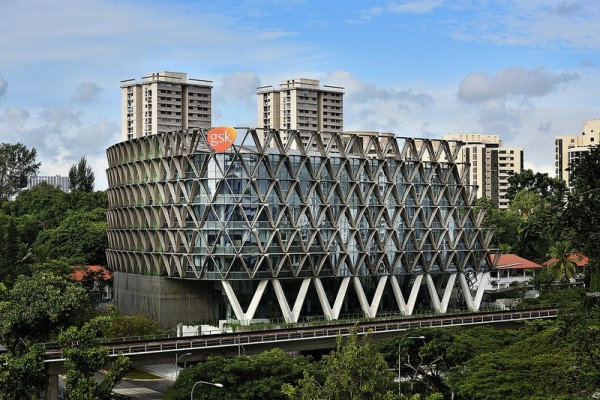Shingrix approved in Europe and Japan for the prevention of shingles in adults aged 50 and over
May 7, 2018
Source: gsk
 1,192
1,192

GlaxoSmithKline plc (LSE/NYSE: GSK) today announced that the European Commission(EC) has approved Shingrix for the prevention of shingles (herpes zoster) and post-herpetic neuralgia (PHN) in adults aged 50 years or older.[i] The Japanese Ministry of Health, Labour and Welfare (MHLW) has also approved Shingrix for the prevention of shingles (herpes zoster) in adults aged 50 years or older. Shingrix is a non-live, recombinant subunit adjuvanted vaccine given intramuscularly in two doses. In Japan, the vaccine is registered to the Japan Vaccine Co., Ltd., a joint venture of GlaxoSmithKline and Daiichi Sankyo Co., Ltd.
Shingles is caused by reactivation of the varicella zoster virus, the same virus that causes chickenpox. Nearly all adults over 50 have the shingles virus dormant in their nervous system, waiting to reactivate with advancing age.[ii]
Dr. Thomas Breuer, Senior Vice President and Chief Medical Officer of GSK Vaccines said: “The approvals of Shingrix in Europe and Japan are recognition of the significant scientific advance this vaccine represents. It has shown over 90% efficacy across all age groups studied for the prevention of shingles, a painful and potentially serious disease that affects around one in three people.
“The risk and severity of shingles increases with age as the immune system loses the ability to mount a strong and effective response to infection. Shingrix was developed specifically to overcome this decline and to help protect people over 50 as we get older,” he said.
Shingrix is the first approved shingles vaccine to combine a non-live antigen, to trigger a targeted immune response, with a specifically designed adjuvant to generate a strong and sustained immune response.
Shingrix was approved in the US[vii] and Canada[viii] in October 2017 and has been recommended by the US Centers for Disease Control and Prevention’s Advisory Committee on Immunization Practices as the preferred vaccine for the prevention of herpes zoster and related complications for immunocompetent adults aged 50 years and older.[ix]
About Shingles
Shingles is caused by the reactivation of the varicella zoster virus (VZV), the same virus that causes chickenpox. Nearly all older adults have the VZV dormant in their nervous system, waiting to reactivate with advancing age.[x] As people age, the cells in the immune system lose the ability to maintain a strong and effective response to VZV reactivation.[xi]
Shingles typically presents as a painful, itchy rash that develops on one side of the body and can last for two to four weeks. The pain associated with shingles is often described as burning, shooting or stabbing.[xii] Even once the rash is gone, a person can experience post-herpetic neuralgia (PHN), pain lasting from at least three months up to several years. PHN is the most common complication of shingles, occurring in up to 30 percent of all shingles cases. [xiii]
Shingles affects approximately 1.7 million Europeans annually[xiv] - approximately 600,000 new cases are reported in Japan each year.[xv] Older adults and those with conditions that compromise the immune system have the greatest risk for developing shingles. More than 99 percent of those over 50 years old are infected with VZV and, it is estimated that around one in three people will develop shingles in their lifetime.[xvi]
About Shingrix
Shingrix [Herpes Zoster vaccine (non-live recombinant, AS01B adjuvanted)] is a non-live, recombinant subunit vaccine to help prevent shingles (herpes zoster) in adults 50 years of age and older. The vaccine combines an antigen, glycoprotein E, and an adjuvant system, AS01B, intended to generate a strong and long-lasting immune response that can help overcome the decline in immunity that occurs as people age.[xvii] [xviii]i
Shingrix is to be given intramuscularly in two doses.
Important Safety Information for Shingrix
You should not receive Shingrix if you are allergic to any of its ingredients or had an allergic reaction to a previous dose of Shingrix.
The most common side effects are pain, redness, and swelling at the injection site, muscle pain, tiredness, headache, shivering, fever, and upset stomach.
Vaccination with Shingrix may not protect all individuals.
Shingrix is not indicated for the prevention of chickenpox.
GSK - a science-led global healthcare company with a special purpose: to help people do more, feel better, live longer. For further information please visit www.gsk.com/en-gb/about-us/.
Read more on
- NICE turns down GSK’s IV Benlysta for systemic lupus June 4, 2021
- EC clears GSK’s Benlysta for lupus nephritis May 10, 2021
- GSK to leverage the Cell and Gene Therapy Catapult’s facility in Stevenage March 12, 2021
- GlaxoSmithKline will Shut Bangladesh Drug Manufacturing Operations by End 2018 July 31, 2018
- GlaxoSmithKline Invests $300 Million in 23andMe July 27, 2018
your submission has already been received.
OK
Subscribe
Please enter a valid Email address!
Submit
The most relevant industry news & insight will be sent to you every two weeks.



